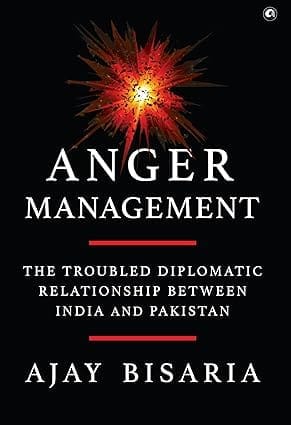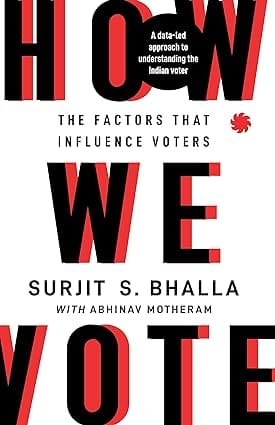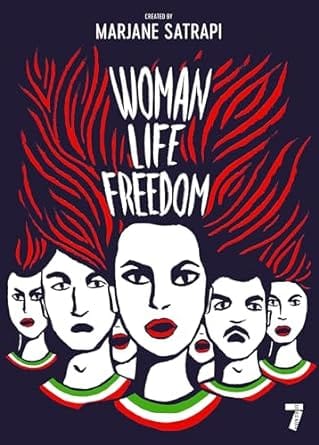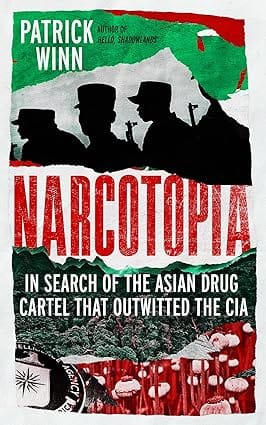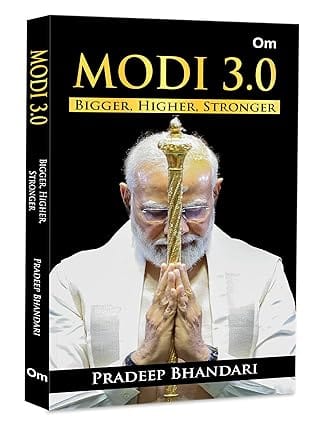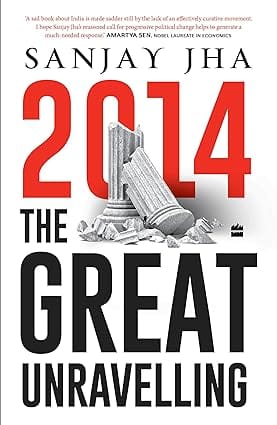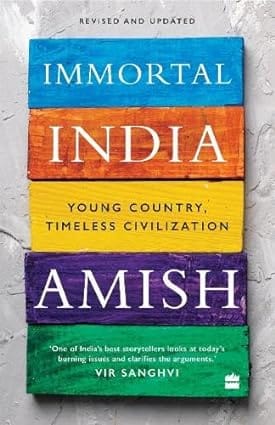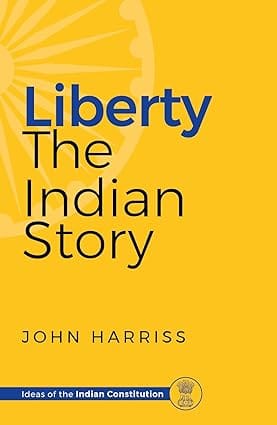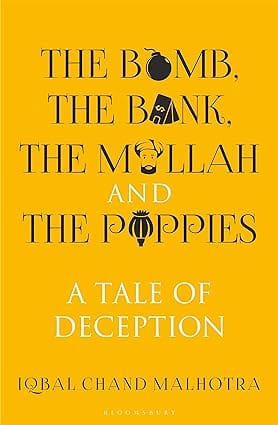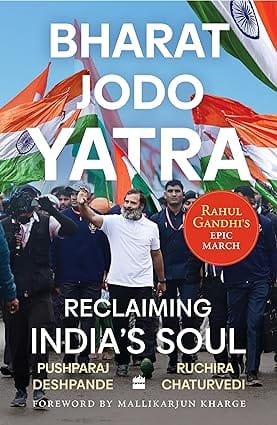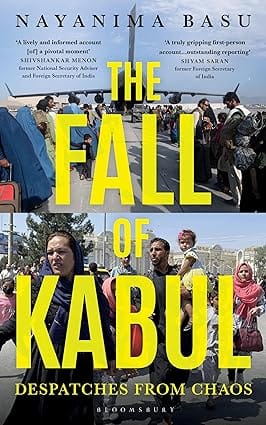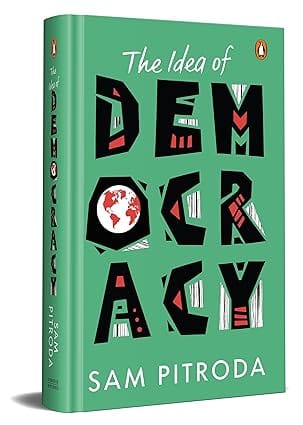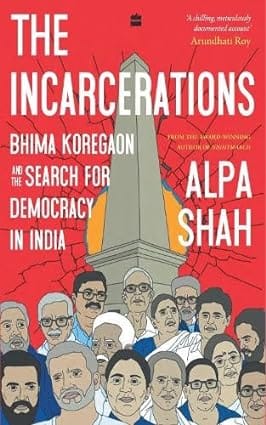WELCOME TO MIDLAND BOOK SHOP!
SHOP FOR
- Contemporary Fiction
- Contemporary Fiction
- Children
- Children
- Comics & Graphic Novels
- Comics & Graphic Novels
- Non-Fiction
- Non-Fiction
- Fiction
- Fiction
Shop No.20, Aurobindo Palace Market, Hauz Khas, Near Church +91 9818282497 | 011 26867121 110016 New Delhi IN
Midland The Book Shop ™
Shop No.20, Aurobindo Palace Market, Hauz Khas, Near Church +91 9818282497 | 011 26867121 New Delhi, IN
+919871604786 https://www.midlandbookshop.com/s/607fe93d7eafcac1f2c73ea4/6468e33c3c35585403eee048/without-tag-line-480x480.png" [email protected]9789393852755 659beb63e5ab7b25b3bd35fe Anger Management The Troubled Diplomatic Relationship Between India And Pakistan https://www.midlandbookshop.com/s/607fe93d7eafcac1f2c73ea4/65f2a57275353f52d730d322/71rx8kjwhdl-_sy425_.jpg 9789393852755
On 7 August 2019, High Commissioner Ajay Bisaria was expelled from Islamabad, the first time an Indian head of mission had been asked to leave by Pakistan. His expulsion marked yet another low in the troubled relationship between the two neighbours who had been born within a day of each other in 1947. The latest diplomatic row followed the dismantling of Article 370 in the erstwhile state of Jammu & Kashmir, but the hostility had been ratcheting up for a while, with the Pakistani terror attack in Pulwama, followed by the Indian airstrikes on terrorists in Balakot, and the grandstanding Pakistan engaged in over the return of a captured Indian Air Force pilot, Abhinandan Varthaman. This book looks in eye-opening detail at all these incidents that took place while the author was India’s top diplomat in Pakistan, including blunders by Imran Khan, the then Pakistani prime minister, and parleys engaged in by the powerful head of the Pakistani army, General Qamar Bajwa. He also describes his interactions with Prime Minister Narendra Modi, External Affairs Minister Sushma Swaraj, and key members of the Indian establishment as they dealt with the multiple crises that took place during that time.
After providing readers with a gripping account of the events he was witness to, the author goes deep into the conflict and tension that have characterized the connection between the countries. He looks at this fractious history from a unique perspective, that of Indian diplomats who have served in Pakistan from Independence onwards. These were the people responsible for managing the situation on the ground, even as the actions of prime ministers, presidents, and generals made the news headlines. India’s envoys were expected to deal with all manner of occurrences from routine matters to rather more taxing things such as dealing with dictators, engaging in backchannel talks with their counterparts and other Pakistani officials (accounts of which have only recently been declassified) when ties were strained, dodging spies, and even on occasion having to endure verbal and physical abuse from thugs and the Pakistani intelligence services. Equally, for all the stresses they had to endure, the warmth and friendship they received from ordinary Pakistanis made many of them hope that one day the cantankerousness and bloodshed that blighted Indo-Pak ties would be replaced by normalcy, if not enduring bonds of warmth and amity.
The stories about what these diplomats were able to do during their time in Pakistan provide the reader with fresh insights into most of the pivotal moments in the relationship—especially Partition, the 1948 Pakistani offensive that was stopped in its tracks by the prompt action of Prime Minister Jawaharlal Nehru, and the even bigger wars of 1965 (ably handled by Prime Minister Lal Bahadur Shastri), 1971 (in which Prime Minister Indira Gandhi won a resounding victory), and 1999 (where the Pakistani intruders were repulsed by Prime Minister Atal Bihari Vajpayee’s decisive leadership). The book throws fresh light on terrorism in Kashmir, the skirmishes across the Line of Control, the attacks by Pakistani terrorists in Mumbai, and the assault on the Indian parliament. Further, the book covers the few initiatives that sought to resolve the perennial state of strife and suspicion between the neighbours—the Simla Accord of July 1972, Vajpayee’s historic bus journey to Lahore in 1999, the Agra Summit of 2001, and other short-lived attempts to make new beginnings. Besides his in-depth analysis of history and current events, the author offers a reasoned plan of how India and Pakistan might be able to arrive at a lasting peace.
Masterfully blending scholarship, telling revelations, memoir, and history, Anger Management is a remarkable study of the diplomatic engagement between India and Pakistan.
After providing readers with a gripping account of the events he was witness to, the author goes deep into the conflict and tension that have characterized the connection between the countries. He looks at this fractious history from a unique perspective, that of Indian diplomats who have served in Pakistan from Independence onwards. These were the people responsible for managing the situation on the ground, even as the actions of prime ministers, presidents, and generals made the news headlines. India’s envoys were expected to deal with all manner of occurrences from routine matters to rather more taxing things such as dealing with dictators, engaging in backchannel talks with their counterparts and other Pakistani officials (accounts of which have only recently been declassified) when ties were strained, dodging spies, and even on occasion having to endure verbal and physical abuse from thugs and the Pakistani intelligence services. Equally, for all the stresses they had to endure, the warmth and friendship they received from ordinary Pakistanis made many of them hope that one day the cantankerousness and bloodshed that blighted Indo-Pak ties would be replaced by normalcy, if not enduring bonds of warmth and amity.
The stories about what these diplomats were able to do during their time in Pakistan provide the reader with fresh insights into most of the pivotal moments in the relationship—especially Partition, the 1948 Pakistani offensive that was stopped in its tracks by the prompt action of Prime Minister Jawaharlal Nehru, and the even bigger wars of 1965 (ably handled by Prime Minister Lal Bahadur Shastri), 1971 (in which Prime Minister Indira Gandhi won a resounding victory), and 1999 (where the Pakistani intruders were repulsed by Prime Minister Atal Bihari Vajpayee’s decisive leadership). The book throws fresh light on terrorism in Kashmir, the skirmishes across the Line of Control, the attacks by Pakistani terrorists in Mumbai, and the assault on the Indian parliament. Further, the book covers the few initiatives that sought to resolve the perennial state of strife and suspicion between the neighbours—the Simla Accord of July 1972, Vajpayee’s historic bus journey to Lahore in 1999, the Agra Summit of 2001, and other short-lived attempts to make new beginnings. Besides his in-depth analysis of history and current events, the author offers a reasoned plan of how India and Pakistan might be able to arrive at a lasting peace.
Masterfully blending scholarship, telling revelations, memoir, and history, Anger Management is a remarkable study of the diplomatic engagement between India and Pakistan.
About the Author
Ajay Bisaria is a commentator on international affairs and a Distinguished Fellow at the Observer Research Foundation. He joined the Indian Foreign Service in 1987 and, in a career spanning thirty-five years, dealt with some of India’s key economic and security relationships. He served as Indian high commissioner to Pakistan from 2017 to 2020. He has been Indian high commissioner to Canada (2020–22), and India’s ambassador to Poland and Lithuania (2015–17). He has also represented the country at the World Bank in Washington DC and in embassies in Berlin and Moscow. He has served in various capacities in the Ministry of External Affairs, Department of Commerce, and the Prime Minister’s Office, where he was a key aide to Prime Minister Vajpayee from 1999 to 2004. He has a Bachelor’s Degree in Economics from St Stephen’s College, Delhi University, an MBA from IIM Calcutta, and a Master’s Degree in Public Policy from Princeton University.
in stockINR 999
1 1
Email ID already exists!
Your Current password is incorrect
Password Updated Successfully
Thanks for your Feedback
Anger Management The Troubled Diplomatic Relationship Between India And Pakistan
ISBN: 9789393852755
₹999
SIZE GUIDE
Sold By: Hauz Khas - Aurobindo Market
Details
- ISBN: 9789393852755
- Author: Ajay Bisaria
- Publisher: Aleph Book Company
- Pages: 560
- Format: Hardback
- Edition: Author Signed Books
Book Description
On 7 August 2019, High Commissioner Ajay Bisaria was expelled from Islamabad, the first time an Indian head of mission had been asked to leave by Pakistan. His expulsion marked yet another low in the troubled relationship between the two neighbours who had been born within a day of each other in 1947. The latest diplomatic row followed the dismantling of Article 370 in the erstwhile state of Jammu & Kashmir, but the hostility had been ratcheting up for a while, with the Pakistani terror attack in Pulwama, followed by the Indian airstrikes on terrorists in Balakot, and the grandstanding Pakistan engaged in over the return of a captured Indian Air Force pilot, Abhinandan Varthaman. This book looks in eye-opening detail at all these incidents that took place while the author was India’s top diplomat in Pakistan, including blunders by Imran Khan, the then Pakistani prime minister, and parleys engaged in by the powerful head of the Pakistani army, General Qamar Bajwa. He also describes his interactions with Prime Minister Narendra Modi, External Affairs Minister Sushma Swaraj, and key members of the Indian establishment as they dealt with the multiple crises that took place during that time.
After providing readers with a gripping account of the events he was witness to, the author goes deep into the conflict and tension that have characterized the connection between the countries. He looks at this fractious history from a unique perspective, that of Indian diplomats who have served in Pakistan from Independence onwards. These were the people responsible for managing the situation on the ground, even as the actions of prime ministers, presidents, and generals made the news headlines. India’s envoys were expected to deal with all manner of occurrences from routine matters to rather more taxing things such as dealing with dictators, engaging in backchannel talks with their counterparts and other Pakistani officials (accounts of which have only recently been declassified) when ties were strained, dodging spies, and even on occasion having to endure verbal and physical abuse from thugs and the Pakistani intelligence services. Equally, for all the stresses they had to endure, the warmth and friendship they received from ordinary Pakistanis made many of them hope that one day the cantankerousness and bloodshed that blighted Indo-Pak ties would be replaced by normalcy, if not enduring bonds of warmth and amity.
The stories about what these diplomats were able to do during their time in Pakistan provide the reader with fresh insights into most of the pivotal moments in the relationship—especially Partition, the 1948 Pakistani offensive that was stopped in its tracks by the prompt action of Prime Minister Jawaharlal Nehru, and the even bigger wars of 1965 (ably handled by Prime Minister Lal Bahadur Shastri), 1971 (in which Prime Minister Indira Gandhi won a resounding victory), and 1999 (where the Pakistani intruders were repulsed by Prime Minister Atal Bihari Vajpayee’s decisive leadership). The book throws fresh light on terrorism in Kashmir, the skirmishes across the Line of Control, the attacks by Pakistani terrorists in Mumbai, and the assault on the Indian parliament. Further, the book covers the few initiatives that sought to resolve the perennial state of strife and suspicion between the neighbours—the Simla Accord of July 1972, Vajpayee’s historic bus journey to Lahore in 1999, the Agra Summit of 2001, and other short-lived attempts to make new beginnings. Besides his in-depth analysis of history and current events, the author offers a reasoned plan of how India and Pakistan might be able to arrive at a lasting peace.
Masterfully blending scholarship, telling revelations, memoir, and history, Anger Management is a remarkable study of the diplomatic engagement between India and Pakistan.
After providing readers with a gripping account of the events he was witness to, the author goes deep into the conflict and tension that have characterized the connection between the countries. He looks at this fractious history from a unique perspective, that of Indian diplomats who have served in Pakistan from Independence onwards. These were the people responsible for managing the situation on the ground, even as the actions of prime ministers, presidents, and generals made the news headlines. India’s envoys were expected to deal with all manner of occurrences from routine matters to rather more taxing things such as dealing with dictators, engaging in backchannel talks with their counterparts and other Pakistani officials (accounts of which have only recently been declassified) when ties were strained, dodging spies, and even on occasion having to endure verbal and physical abuse from thugs and the Pakistani intelligence services. Equally, for all the stresses they had to endure, the warmth and friendship they received from ordinary Pakistanis made many of them hope that one day the cantankerousness and bloodshed that blighted Indo-Pak ties would be replaced by normalcy, if not enduring bonds of warmth and amity.
The stories about what these diplomats were able to do during their time in Pakistan provide the reader with fresh insights into most of the pivotal moments in the relationship—especially Partition, the 1948 Pakistani offensive that was stopped in its tracks by the prompt action of Prime Minister Jawaharlal Nehru, and the even bigger wars of 1965 (ably handled by Prime Minister Lal Bahadur Shastri), 1971 (in which Prime Minister Indira Gandhi won a resounding victory), and 1999 (where the Pakistani intruders were repulsed by Prime Minister Atal Bihari Vajpayee’s decisive leadership). The book throws fresh light on terrorism in Kashmir, the skirmishes across the Line of Control, the attacks by Pakistani terrorists in Mumbai, and the assault on the Indian parliament. Further, the book covers the few initiatives that sought to resolve the perennial state of strife and suspicion between the neighbours—the Simla Accord of July 1972, Vajpayee’s historic bus journey to Lahore in 1999, the Agra Summit of 2001, and other short-lived attempts to make new beginnings. Besides his in-depth analysis of history and current events, the author offers a reasoned plan of how India and Pakistan might be able to arrive at a lasting peace.
Masterfully blending scholarship, telling revelations, memoir, and history, Anger Management is a remarkable study of the diplomatic engagement between India and Pakistan.
About the Author
Ajay Bisaria is a commentator on international affairs and a Distinguished Fellow at the Observer Research Foundation. He joined the Indian Foreign Service in 1987 and, in a career spanning thirty-five years, dealt with some of India’s key economic and security relationships. He served as Indian high commissioner to Pakistan from 2017 to 2020. He has been Indian high commissioner to Canada (2020–22), and India’s ambassador to Poland and Lithuania (2015–17). He has also represented the country at the World Bank in Washington DC and in embassies in Berlin and Moscow. He has served in various capacities in the Ministry of External Affairs, Department of Commerce, and the Prime Minister’s Office, where he was a key aide to Prime Minister Vajpayee from 1999 to 2004. He has a Bachelor’s Degree in Economics from St Stephen’s College, Delhi University, an MBA from IIM Calcutta, and a Master’s Degree in Public Policy from Princeton University.
User reviews
NEWSLETTER
Subscribe to get Email Updates!
Thanks for subscribing.
Your response has been recorded.

India's Iconic & Independent Book Store offering a vast selection of books across a variety of genres Since 1978.
"We Believe In The Power of Books" Our mission is to make books accessible to everyone, and to cultivate a culture of reading and learning. We strive to provide a wide range of books, from classic literature, sci-fi and fantasy, to graphic novels, biographies and self-help books, so that everyone can find something to read.
Whether you’re looking for your next great read, a gift for someone special, or just browsing, Midland is here to make your book-buying experience easy and enjoyable.
We are shipping pan India and across the world.
For Bulk Order / Corporate Gifting
 +91 9818282497 |
+91 9818282497 |  [email protected]
[email protected]
Click To Know More
INFORMATION
ACCOUNT
TRACK SHIPMENT
ADDRESS
Midland Book Shop - Hauz Khas
Shop No.20, Aurobindo Palace Market, Near Church, New Delhi
Shop No.20, Aurobindo Palace Market, Near Church, New Delhi

